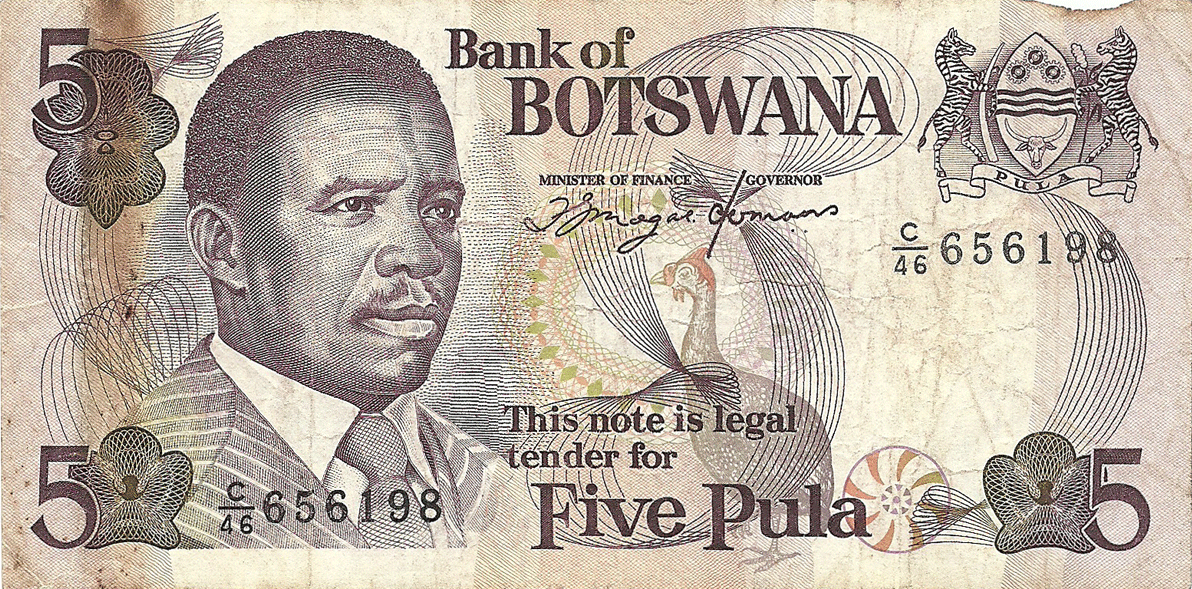
The Life & Legacy of Ketumile Masire in Botswana
Former Botswana President, Ketumile Masire who led the country from 1980 to 1998 has died at the age of 91. Quett Ketumile Masire, (23 July 1925 – 22 June 2017) was the second President of Botswana. Many historians credit him as a highly competent technocrat and visionary that forged the country into the oasis that it is today.
The Early Years

Ketumile Masire was born in Kanye, the capital of the Bangwaketse Reserve, Bechuanaland (present day Botswana). He grew up in colonial Botswana where black men like him were expected to become low-paid migrant laborers in the mines of South Africa. However, from an early age Masire set himself apart through academic achievement. After graduating at the top of his class at the Kanye School, he received a scholarship to further his education at the Tiger Kloof Institute in South Africa. After graduating from Tiger Kloof in 1950, Masire helped found the Seepapitso II Secondary School, the first institution of higher learning in the Bangwaketse Reserve. He served as the school’s headmaster for five years. During this period he clashed with Bathoen II, the autocratic Bangwaketse ruler. Masire managed to revive the Bechuanaland African Teachers Association (BATA) and became an advocate for the autonomy of protectorate schools from chiefly authority.
In 1957, Masire earned a Master Farmers Certificate and established himself as one of the territory’s leading agriculturalists. Despite his success, he was always in conflict with Bathoen, who seized his farms as a penalty for the supposed infraction of fencing communal land. When Masire challenged this decision, the chief went further by threatening his banishment.
In 1958, Masire was appointed as the protectorate reporter for the African Echo/Naledi ya Botswana newspaper. He would later become the Editor of his party’s newspaper, Therisanyo, which was the protectorate’s first independent newspaper. He was also elected to the newly reformed Bangwaketse Tribal Council and, after 1960, the protectorate-wide African and Legislative Councils. Although he attended the first Kanye meeting of the People’s Party, the earliest nationalist grouping to enjoy a mass following in the territory, he declined to join the movement. Instead, in 1961 and 1962, he founded the Botswana Democratic Party (BDP), and served as its Secretary-General.
The party quickly gained popularity because of the zeal and hard work of its founders: Seretse Khama and Ketumile Masire. It is reported that in one two-week period in 1964, for example, while campaigning in remote areas of the Kalahari Desert, he traveled across some 3,000 miles to address 24 meetings. The party was primarily made of a strong network of local party organizers, such as teachers and farmers.
In 1965, the Democratic Party won 28 of the 31 contested seats in the new Legislative Assembly, giving it a clear mandate to lead Botswana to independence. The following year Masire became the new nation’s vice-president, serving under Seretse. Until 1980, he also occupied the significant portfolios of finance and development planning, which were formally merged in 1971.
The Presidency
With the death of Seretse in July of 1980, Masire became Botswana’s second president. About five days after the death of Khama, Ketumile Masire was elected as President by secret ballot at the National Assembly on 18 July 1980.
Under his leadership Botswana continued to enjoy its remarkable post-independence economic growth rate of some 10 percent per year, one of the highest in the world. Most of this growth came from diamonds, the nation’s leading export earner. Expanded revenues allowed Masire’s administration to expand social services considerably, particularly in the areas of education, health, and communications.
During Masire’s leadership in Botswana, he consistently championed the cause of black majority rule in South Africa by granting asylum to refugees from apartheid. However, he also cowardly refused to allow Botswana to be used as a base by freedom fighters from South Africa.
On August 7, 1988, while flying with his staff to a summit in Angola, his executive jet was accidentally shot at by an Angolan Air Force MiG-23. The plane was damaged and Masire was injured, but the co-pilot was able to make a successful emergency landing.



3 Comments
by Phil
Accusations made without any concrete examples or evidence.
by Dee Kwamukamba
Dr. Nkrumah said it best when he stated that tge independence of Ghana meant nothing without the emancipation of the whole continent. Masire cowardice was meant to protect the Tswana for better or worse he did not fully embrace protection of freedom fighters, fighting for Uhuru in Azania still called South Africa
by Gwen Nxu
Masire was a hero to those who mattered -BaTswana.
Comments are closed.